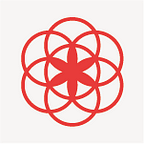Talking about menstruation is important because it helps to dismantle cultures of shame and misinformation that have been around for thousands of years. It can be incredibly empowering to exchange ideas, experiences and information about periods. At the same time, it can be alienating for those who are left out of the discussion.
Some women don’t have periods due to menopause, stress, disease or a hysterectomy. They may have never started menstruating due to a variety of medical conditions or they may be transgender or intersex. At the same time, there are people who menstruate who aren’t women. They might be trans men, intersex, genderqueer or use another term like nonbinary.
Menstruation is a biological function; it’s not a “woman thing.” It’s an experience that can be highly variable, and mean different things to different people. It’s not necessary to gender body parts or bodily functions. We can demystify and destigmatize menstruation without shutting anyone out.
In the past, feminists were mocked for demanding changes to sexist language, but it’s now common to say firefighter instead of fireman, flight attendant rather than stewardess, and doctor in place of lady doctor.
It might seem awkward right now to say “people who menstruate” or “menstruators” but this is just like changing other biased language. It’s more accurate than saying “women” and using a non-gendered term also helps to make vital health information available to everyone who needs it — whatever their gender.
Even if they’re intended to be more inclusive, phrases like “female genitalia” or “female-bodied person” are alienating to some trans people. Such terms may label people’s bodies in terms they don’t identify with. These phrases may be difficult to replace, but it’s not impossible. Which term is most appropriate and respectful depends on the context.
Perhaps you want to say something to people who have a specific body part, like “people with vulvas” or “people with cervixes.” Maybe you’re talking about people who have bodies that function in a certain way: “people who can become pregnant” or “people who menstruate.” Then there are those affected by certain medical procedures: “people who need mammograms.”
Another option is to discuss the topic without referring to a certain group of people. We can simply say “Pap smears should be done regularly” or “Menstrual sponges can be used instead of pads or tampons to collect period blood.” That way people can read the statement and accept it as relevant or irrelevant to them, without having to identify with a certain gender or group.
The language we use is important. People who do not fit within the common definition of “women” can become easily isolated, marginalized, stigmatized and discriminated against. When diseases and health care issues are gendered, it becomes more difficult for trans and gender nonconforming people to access healthcare.
Our bodies do not determine our identities, and we are so much more than merely bodies. It’s important for all of us to have a context for our experiences and a way of talking about them. We can all be part of changing the dialogue about menstruation, and, by extension, health. People of all genders have periods, and barrier-free access to support and information benefits us all.
Clue is a health app with a focus on certain aspects of health including menstruation, contraception, pregnancy, menopause among others. We are constantly evaluating better ways to describe this focus that moves beyond the idea that woman = uterus.
Within the Clue app and our customer support conversations, we do our best to remain gender neutral, but in some of our English-language marketing we use the term “female health” to describe what we do. Clue is currently available in 14 languages and each one offers unique challenges and possibilities. For now, we feel that using the word female makes our app and company story more accessible to people who are not familiar with evolving language around gender.
Do you have ideas for a non-gendered way to describe what we do at Clue? If you identify with these issues, please feel free to contact us at support@helloclue.com with your feedback. We would love to hear from you.
